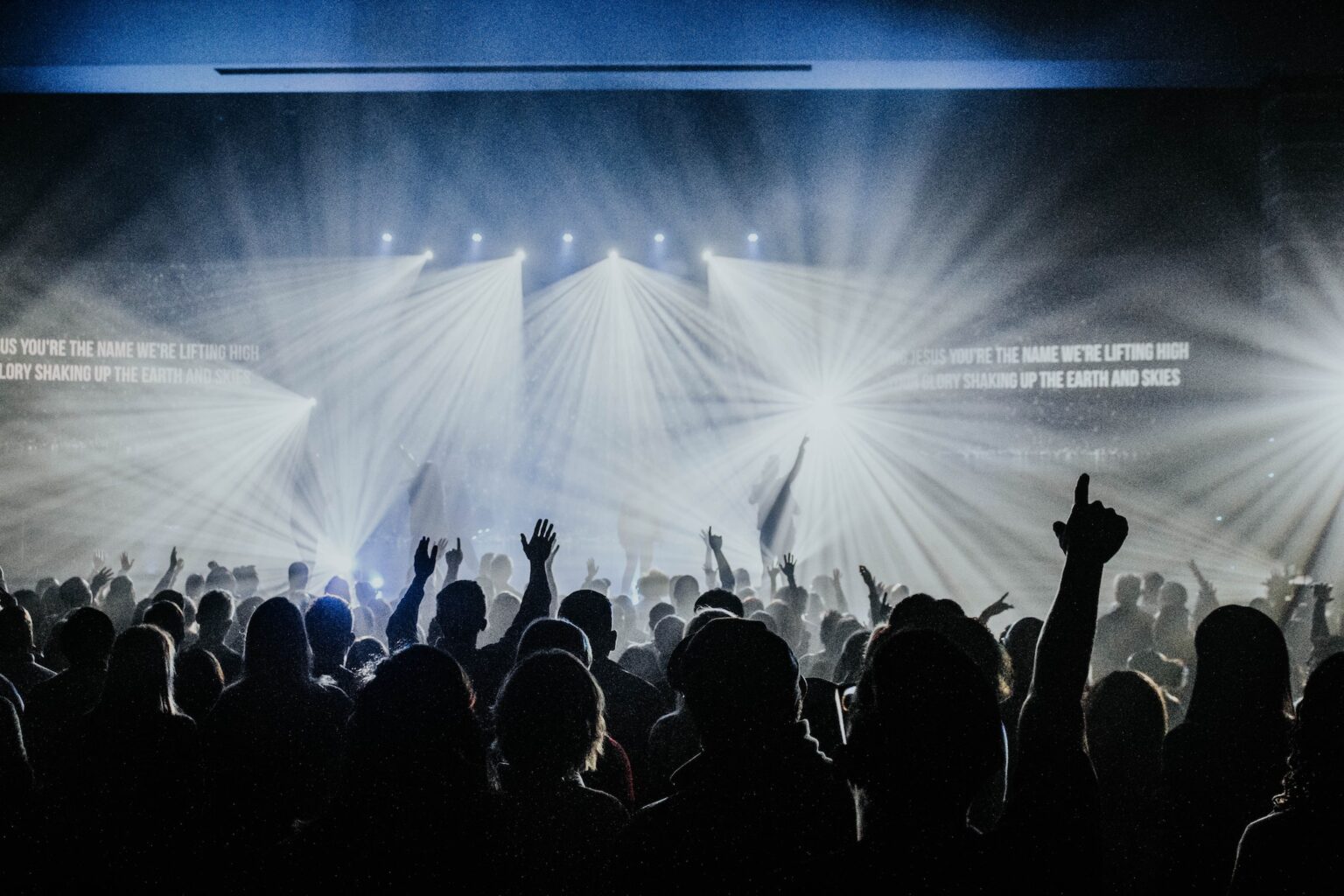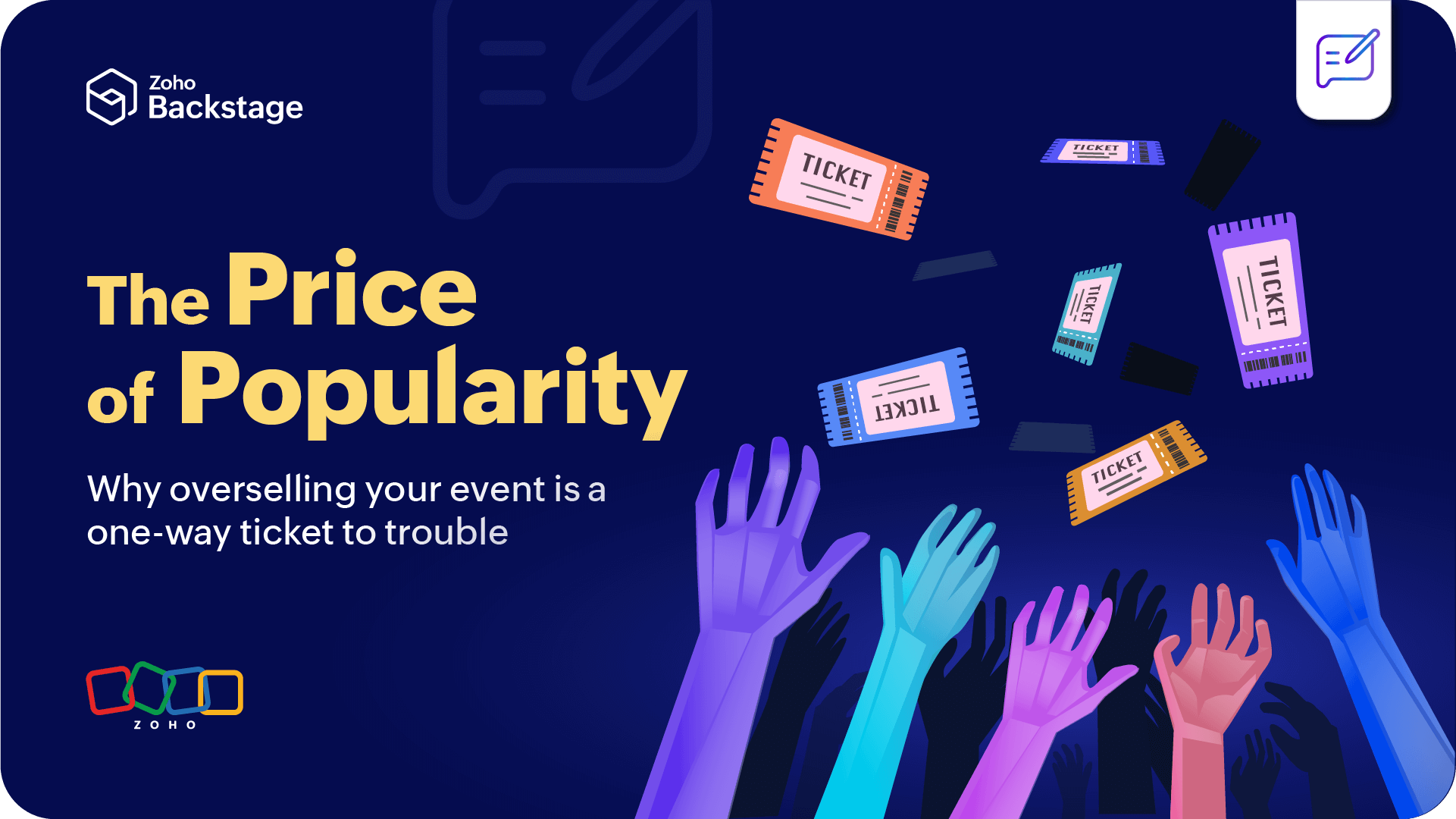10 marketing tips to massively increase your event registration
- Last Updated : August 18, 2023
- 5.7K Views
- 6 Min Read

Think of the last time you were at a music concert or a sports tournament. Do you ever wonder how much work and planning it would’ve taken the organizers to run the show so seamlessly? The behind-the-scenes of an event involves a lot of activities starting from planning, coordinating, up to putting things together.
However, all these efforts would amount to nothing if no one showed up at the event. In fact, a low registration rate would affect everything including revenue, sponsorship, and speakers. So how do you as an organizer create impact and drive registrations to a particular event? Would you email them, put out a poster, call your friend Bill and ask him to spread the word? Well, there’s a lot involved, and it might seem a little overwhelming to begin with.
To help you get started, we made a comprehensive checklist for you to market your event right and drive attendance.
Define your event’s goal
Before you start working on bringing attendees to your event, focus on understanding what your event’s goal is. Ask yourself the following questions:
What are you offering attendees? What is your event’s value proposition?
What interest groups should attend your event?
How many registrations can your event accommodate?
How much revenue are you trying to generate through this event?
What are some of the brand-building activities you have planned (if there are any)?
Subscribe to The Green Room
Sign up here and get all the most relevant MICE industry content delivered right to your inbox once a month.
By submitting this form, you agree to the processing of personal data according to our Privacy policy.
Narrow your audience
Knowing your audience makes it easier to plan activities. Analyze the common goals and interests your attendees might share. Create attendee personas and be as specific as possible. Understand your attendees’ interests, where they hang out, and what sort of content they consume. This will help you market your event in a way that reaches your audience faster.
In addition to learning who your audience is, understand what they’re trying to derive from your event.
Networking with people in their or any related industry
Learning about industry developments and improvements
Listen to important speakers
Spy the competitors and learn what they’re doing
Create an event marketing toolkit
When it comes to marketing an event, it’s necessary to keep a set of tools ready for when you see an avenue to showcase your event. Some things you can keep handy include:
Your event’s positioning (for your speakers, sponsors, and other stakeholders)—your target market, your event’s unique proposition, and why your target market should believe in your proposition. This information will come in real handy when you approach speakers and sponsors for your event.
A brochure for exhibitors or sponsors that contains event details such as the date, time, venue, number of attendees, your target audience and their interests, your value proposition, speakers, sessions, and sponsors.
Event ads to attract attendees from various geographies that can be featured in newspapers/magazines or sent across emails.
Site maps; if your event is held on-site, for your attendees and exhibitors. It’s necessary to keep an updated copy of the sitemap that shows booth availability.
Build beautiful and insightful event websites
A website is the online destination to your event. Make it informative by including the event dates, venue, speakers, sponsors, tickets, frequently asked questions, posts from previous events, and a contact us form.
Ensure that your registration form is easy to use and signs attendees up quickly. Ask for only the most necessary details. Usability studies show that long registration forms with irrelevant questions drive away registrants.
Set specific website goals such as the number of website visitors, number of event signups, the conversion ratio, website shares, and more. Register user-approved cookie data in order to provide personalized event information for your website visitors.
Use content distribution channels and event discovery sites
Content marketing can get you a substantial amount of online registrations and help with positive word-of-mouth. Create blogs about your event, have influencers and industry leaders recommend your event in their blogs, and post industry-specific thought leadership posts through which attendees might discover you.
Create channels around the theme of your event and promote discussions. Post your event on discovery sites like Facebook events, Eventful, and more.
Leverage your mailing list
According to a recent study by Forrester, 40 percent of marketers believe email to be the single most effective channel for marketing an event. When you know who your persona is and what their needs are, email can be the best way to reach your audience and give them a specific solution while driving them to your event registration page. It’s important to also be clear what actions you want your recipients to perform. Subject lines are one of the most important things in an email to improve its open rate. It should be kept brief and should offer value.
Let influencers speak for your event
When a thought leader of an industry related to your event vouches for the event, it can build trust and lead to more registrations. Reach out to these thought leaders to ask if they’ll mention your event on their social media channels, blog posts, or websites.
Similarly, speakers and sponsors of an event will often be big influencers. Encouraging your speakers and sponsors to promote the sessions at the event can help increase the size of your audience.
Affiliate marketing is also a great way to refer and reward. Promote referral codes so people who join your event will also bring others who have a similar interest in the event.
Build symbiotic event relationships
Events that are similar to yours can be a great place to find an audience. Partner with these events to promote yours by sponsoring them or reserving a booth. Network with attendees to gauge their interest and understand how they feel about this event so you can improve those aspects at your own.
Additionally, if “Be the better version of yourself” can be used to constantly improve oneself, in the event space, “Host a better event than the last” should be a thing. Use insights from your previous event as a stage to promote the next one.
Give out early-bird discounts
Early bird discounts are a great way to build a buzz around your event and reward the first few registrants. Since early bird discounts come with a deadline and a limited number of tickets, you can set a quota at a discounted price to be sold early.
This also coaches your community to remember your event and reach out early on for registrations. Run social media ads and send out emails to your list about the discount to get the game started.
Spread your wings and get social
With all your attendees going online, catch them where they are. Social media is where the game is—it lets you engage with your audience on a much larger scale to boost your attendance. Use Instagram stories, create an event page on Facebook, or live tweet about the event. Host a contest online and choose giveaways. Make use of 4:1:1 rule for social media with 4 original tweets from others, and 1 retweet for every self-promoting tweet.
Event registration is definitely one of the most important and difficult activities among the myriad others when it comes to bringing in attendees and increasing the event revenue. However, with the right set of strategy and event management tools, be it online or offline, your next event can easily sell out.
If, like us, you're more of a social person, let's connect on Twitter (@ZohoBackstage) and we'll keep you up-to-date with all the latest event news.
 Veena
VeenaI stalk event trends. A marketer for Zoho Backstage. Love music from the '60s and '80s.








